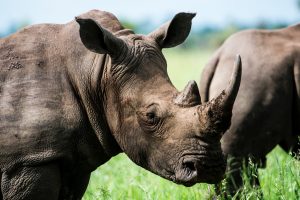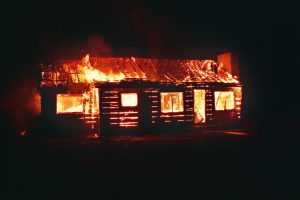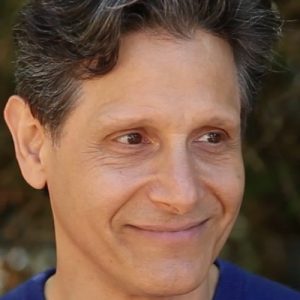Rhinos, Fires, and Pandemics
(This post was written before the murders of Ahmaud Arbery, Breonna Taylor and George Floyd, and the uprisings across the US. So it does not address the pandemic of police killing black people and institutionalized racial violence.)
by Lane Arye
It is a time of upheaval, uncertainty, financial collapse. Of fear, sickness, death, grief. Of isolation, self-protection, selfless service, slowing down, going inside.
While COVID-19 is decimating communities of color in the US, highlighting and amplifying systemic oppression, and so many people are losing their jobs, I have the huge privilege to live in a house with my healthy family, see clients on Zoom, and work on myself. Unfairly, it’s a time of incredible growth for me.
Working on Worst Fears
I spent the first week of the pandemic welcoming and fully experiencing the fear in my body, letting it tremble until the shaking was a vibration resonating with the vibration of the universe. Then I worked on my worst fantasies of being deathly ill with the virus, alone in a hospital room, my lungs filled with scars, unable to take a breath. I took in the physical suffering, the terror. I felt my aversion to it, fighting against reality. I felt my fury, loneliness, self-pity, and entitlement. “Why me? I am too important to be having this experience!” Then I let all of that die. What remained was freedom. Acceptance. Equanimity. An ecstatic joy. Huge gratitude for this breath, this moment.
Flowing with the Current
This reminds me of a Taoist tale. Confucius, on the edge of a turbulent river, sees an elderly man apparently fall in. The master orders his disciples to rescue the man. They find him standing downstream, unharmed. When Confucius asks how he fought against the dangerous whirlpools, the man laughs. “I didn’t fight. I let the vortex take me to the bottom; then it pushed me back up.” This ancient wisdom is at the core of Processwork. Rather than resisting what is disturbing or scary, we follow it to the bottom. When we flow with the river of process, our troubles become teachers, leading us toward something valuable and meaningful.
Triggered Childhood Trauma
Even with such deep experiences, I sometimes still get triggered into old trauma. Much of my life has been ruled by fear. Childhood taught me the world is not safe. Those who should have taken care of me were themselves life threatening. Lack of safety somehow got projected onto germs. That guy just coughed into his hand. He touched that doorknob. Someone else is touching the doorknob, and now she’s coming toward me! I’ve healed so much of that trauma, and yet it still lives in my body, waiting for a trigger.
Fire and Rhinos in my Dream
In the first weeks the coronavirus was spreading through California, I had a dream. In the dream, I’m living in an old farmhouse. I go outside and see my gate is open. I’m angry that someone opened my gate. I see a bunch of rhinoceroses standing in my front yard, and I know it will be impossible to move them. I go back inside and a homeless man is in my kitchen, setting small fires all around the outside walls of my house. I scream “what the f#@k are you doing?!” and I run to the kitchen to get water to put out the fires. I can’t find a container to carry the water in. I know I’ll never put the fires out, which by now have multiplied and grown. I wake up in a panic.
Reflecting on it, I saw that the “me” in the dream (what Processwork calls my primary process, the part I identify with and that’s most known to me) was angry and scared. It wanted to close the gate, get rid of rhinos, and put out fires. My secondary process (the part that’s disturbing to me or definitely “not me”) included the rhinos, the open gate, the homeless man, and fires burning down the walls. How could I possibly follow these disturbances? I felt too shaky to even try. I anyway couldn’t go further at the time. It was time to buy food for my family, my first shopping trip in the time of Covid-19.
Grocery Shopping During Covid
The store was crowded. I was nervous to touch the food, wondering if the virus was on it. When someone came near me, I felt angry and scared, and quickly walked away. I was hypervigilant, my body tense, my eyes scanning for danger.
 Waiting in line to pay, the guy behind me kept coming too close. My muscles tightened, ready to push him or run. Then I remembered the rhinos. My body immediately settled. I was as huge as they were, as grounded and immovable, my thick skin impenetrable as armor. In that moment I remembered the fires, and I let the fires burn down my walls. Suddenly I looked around and saw people, who all looked scared. I was filled with compassion for them. They were no longer threats. They were human beings like me, and I loved them.
Waiting in line to pay, the guy behind me kept coming too close. My muscles tightened, ready to push him or run. Then I remembered the rhinos. My body immediately settled. I was as huge as they were, as grounded and immovable, my thick skin impenetrable as armor. In that moment I remembered the fires, and I let the fires burn down my walls. Suddenly I looked around and saw people, who all looked scared. I was filled with compassion for them. They were no longer threats. They were human beings like me, and I loved them.
I was reminded of a poem by Mizuta Masahide, a 17th century Japanese poet and samurai.
“My barn having burned down, I can now see the moon.”
From Trauma to Freedom
What happened there? When I walked into that store, my old trauma was triggered, and the little scared boy was in the driver’s seat. I was seeing the world through his hypervigilant eyes, feeling through his tense body. Long gone was Lane the processworker, who meditated on his death, opening his lungs and his being to the virus. My body in hyperarousal, I was in fight/flight mode, ready to yell at or run from the people coming too close to me. Like in my dream, I wanted to close my gates, protect my property, not let in anything that could hurt me. But gratefully, the rhino was inside my gates, in my body. When I felt the rhino’s grounded invulnerability, the scared boy settled down. I no longer needed walls to protect me and was happy to burn them down. Then I could see the beauty all around me. I was homeless, with nothing protecting me, nothing needing protection. The river had pulled me to the bottom and lifted me back up, with treasure in my pockets. My barn having burned down, I could see the moon.
By Lane Arye, Dipl. PW., Ph.D.
Lane Arye is a senior Processwork trainer and a founding faculty member of The Processwork Institute. Whether teaching, working in private practice, facilitating community and organizational conflicts, he partners with people to help create more inner and outer freedom, inclusion and wholeness. A process structure geek, Lane has a process oriented, neurobiologically informed way of framing and working with trauma reactions. He researches whiteness, and leads groups for white folks about race, resilience and repair. Lane lives near San Francisco with his wife and two teenagers, who help him grow his heart every day.
Learn more about Lane or contact him at: www.ProcessWorkLane.com
Image credits
Fire: pixabay
Rhinos: pexels


